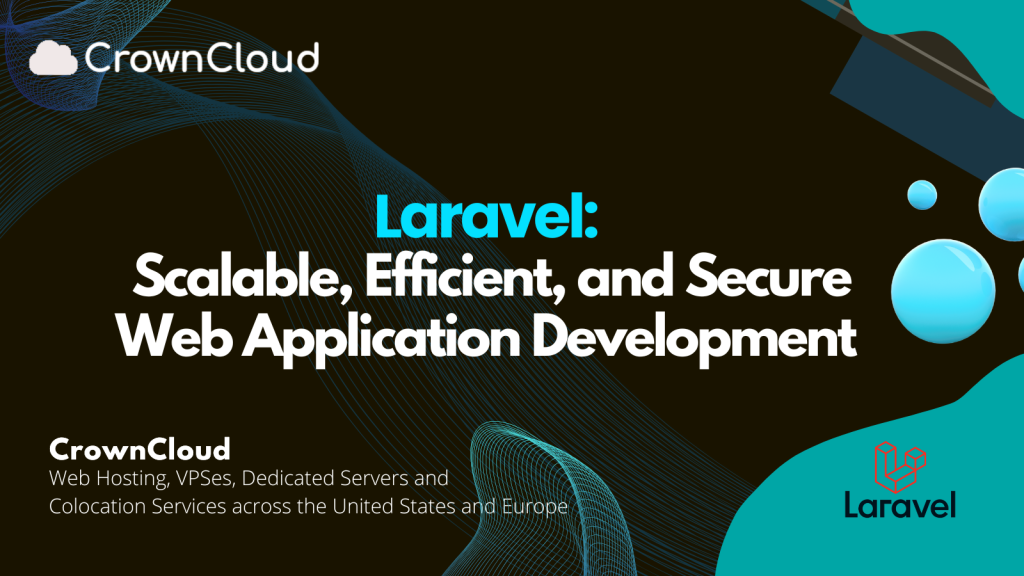Today’s Article Delves into Laravel, a Leading PHP Framework for Web Application Development.
What is Laravel?
Laravel is a feature-rich, open-source PHP framework designed to simplify web application development with expressive syntax, powerful tools, and scalability. It provides developers with a well-structured approach to building secure, high-performance applications while automating common coding tasks.

Core Features of Laravel:
- Elegant Syntax & MVC Pattern: Laravel follows the Model-View-Controller (MVC) architecture, ensuring a clear separation of logic and presentation for better code maintainability.
- Blade Templating Engine: A lightweight yet versatile templating system that simplifies dynamic HTML rendering.
- Eloquent ORM: A user-friendly Object-Relational Mapping (ORM) tool that makes database interactions intuitive.
- Authentication & Authorization: Laravel comes with built-in authentication and role-based access control (RBAC) to manage user permissions seamlessly.
- Routing & Middleware: Enables structured URL routing with middleware for security and request processing.
- Task Scheduling & Queues: Efficiently handle background tasks and automate processes using Laravel’s queue system.
- RESTful API Support: Streamlined API development with resource controllers, API authentication, and JSON responses.
- Testing & Debugging Tools: Native PHPUnit support simplifies writing and executing tests for stable applications.
- Security & Data Protection: Provides CSRF protection, encryption, hashing, and SQL injection prevention to fortify application security.
- Rich Package Ecosystem: Laravel supports an extensive range of official and third-party packages to enhance functionality.
Benefits of Using Laravel:
- Rapid Development: Laravel automates repetitive tasks such as routing, authentication, and database migrations, saving valuable development time.
- Highly Scalable: Whether you’re building a simple website or a complex enterprise solution, Laravel scales effortlessly.
- Performance Optimization: Built-in caching, query optimization, and advanced tools ensure smooth application performance.
- Active Community Support: A vibrant developer community provides extensive documentation, tutorials, and open-source packages.
- SEO & Speed Enhancements: Laravel integrates seamlessly with caching solutions and supports SEO-friendly URLs to boost performance.
- Flexibility: Suitable for developing monolithic applications, RESTful APIs, and microservices-based architectures.
System Requirements for Laravel:
- Operating System: Compatible with Linux (Debian, Ubuntu, CentOS) and Windows.
- Web Server: Works with Apache, Nginx, or any PHP-compatible server.
- PHP Version: Requires PHP 8.0 or higher.
- Database Support: Compatible with MySQL, PostgreSQL, SQLite, and SQL Server.
- Composer: Essential for dependency management.
- Node.js & NPM: Required for managing frontend assets with Laravel Mix.
Installation on Linux OS (CentOS and Ubuntu based OS):
You can find installation instructions in the CrownCloud Wiki Guides, and it follows:
Purchase a KVM VPS – Choose a KVM VPS plan from us that suits your requirements.
KVM SSD Plans – https://crowncloud.net/ssd_kvm.php
NVMe SSD KVM VPS Plans – https://crowncloud.net/nvme_kvm.php
AMD Ryzen SSD KVM VPS – https://crowncloud.net/ssd_amd_ryzen_kvm.php
Intel i9 12900K SSD KVM VPS Plans – https://crowncloud.net/ssd_intel_i9_kvm.php